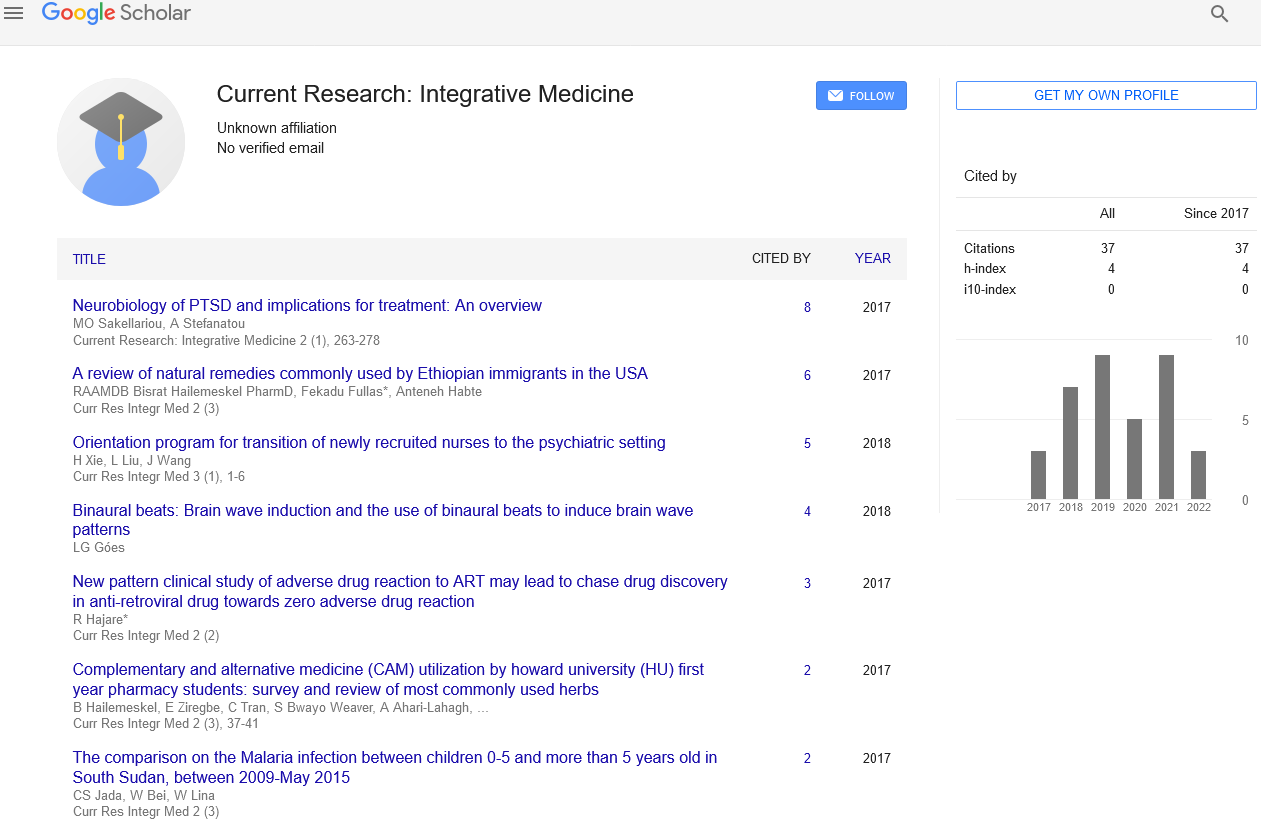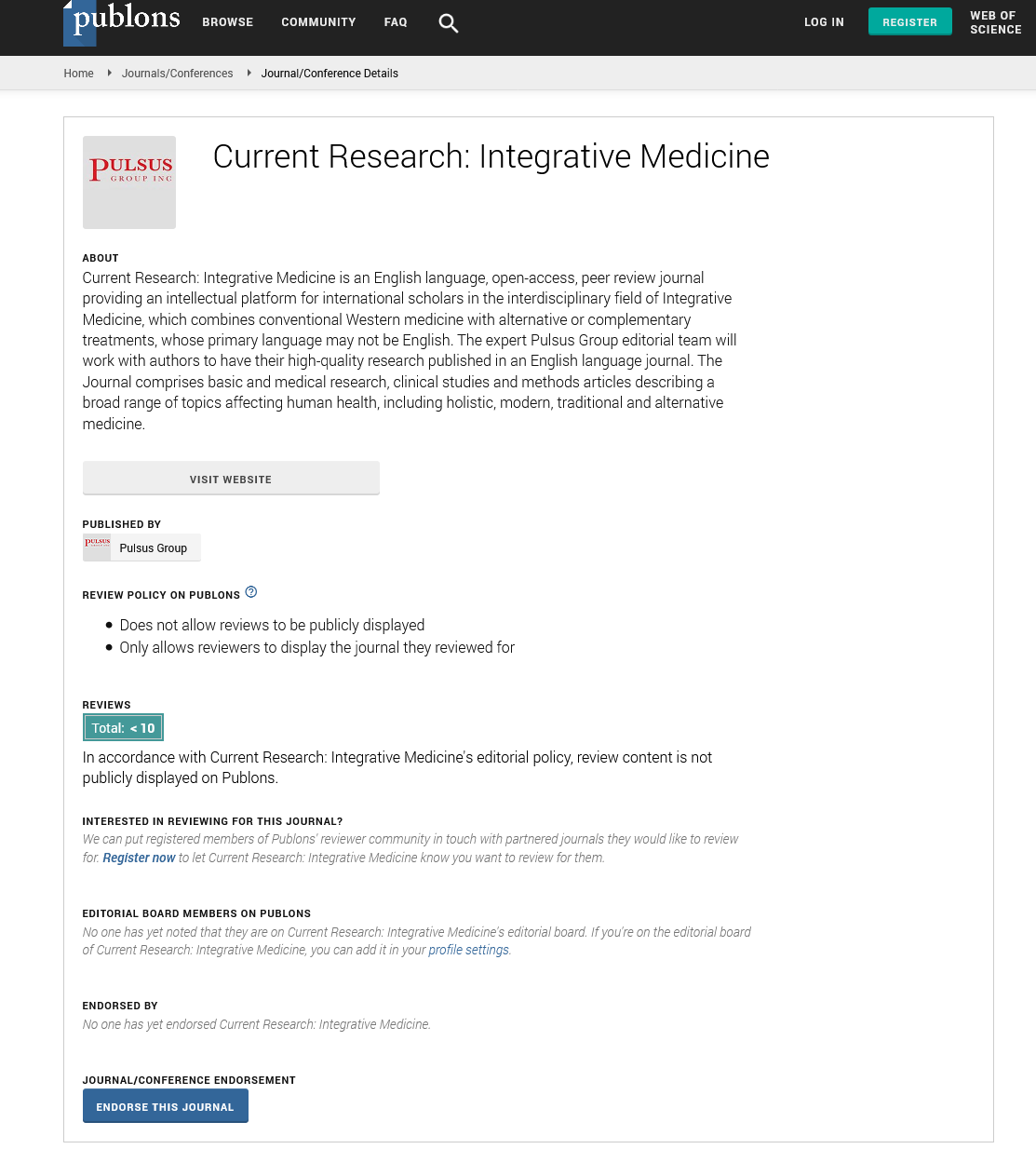Nutrition and Dietary Therapy
Received: 06-Jan-2022, Manuscript No. PULCRIM-21-3717; Editor assigned: 09-Jan-2022, Pre QC No. PULCRIM-21-3717 (PQ); Accepted Date: Jan 25, 2022; Reviewed: 11-Jan-2022 QC No. PULCRIM-21-3717 (Q); Revised: 15-Jan-2022, Manuscript No. PULCRIM-21-3717 (R); Published: 26-Jan-2022, DOI: 10.37532. pulcrim.22.7 (1).01
Citation: Jessy S. Nutrition and dietary therapy. Curr Res Integr Med 7(1).1.
This open-access article is distributed under the terms of the Creative Commons Attribution Non-Commercial License (CC BY-NC) (http://creativecommons.org/licenses/by-nc/4.0/), which permits reuse, distribution and reproduction of the article, provided that the original work is properly cited and the reuse is restricted to noncommercial purposes. For commercial reuse, contact reprints@pulsus.com
Commentary
Diet therapy is a broad term for the alteration or adoption of a diet to prevent or treat a disease or to simply promote optimum health. In some cases, an alternative dietary lifestyle plan may be developed to eliminate certain foods to reclaim health. An incorrect diet can cause not only weight gain and skin conditions but may promote exhaustion and fatigue. Depending on the disease, if you do not follow the diet advised to you by a specialist it may have serious consequences on your health. A good diet can prevent various diseases.
For example, if it is to treat obesity or excess weight, weight loss is closely related to a decrease in the number of calories released in the body; in fact, the energy balance must be negative, that is, the calories consumed must be lower than those burned. This is achieved not only by integrating a sports activity into the patient's routine but also by changing the patient's eating habits. Diet therapy is not limited to weight loss: in fact, this treatment can prevent and treat a whole range of different diseases, with very different characteristics and the diet may depend on the nature of the disorder treated. Below is a list of diseases that can be treated with diet therapy and other clinical treatments.
The specialist doctor creates a personalized dietary program to adapt the diet to the patient's lifestyle and health. Depending on the pathology you may suffer from, foods that cause damage are excluded, while those that can cure or prevent the manifestations of the disease are included. Before adopting a therapeutic diet, it is necessary to consult with a specialist doctor, during which the patient's history and medical history are collected. Personal food preferences should be considered (so that the diet is respected more in in the long term) as well as factors such as weight, height, body fat and lean body mass and body mass index.
Diet therapy is the branch of dietetics concerned with the use of foods for therapeutic purpose. It is method of eating prescribed by a physician to improve health. Diet therapy usually involves the modification of an existing dietary lifestyle to promote optimum health. Therapeutic diets are modified for nutrients, texture and food allergies or food intolerances. Diet therapy is a method of eating to improve health for prescribed by a physician. Diet therapy involves the modification of an existing dietary lifestyle for good health. Some common therapeutic diets are clear liquid diet, full liquid diet, high fiber diet, renal diet, pureed diet, food allergy modification etc. It is branch of dietetics related with the use of food for therapeutic purposes. It is ordered to maintain, restore and correct nutritional status, to decrease calorie for weight control, provide extra calorie for weight gain. It also balances amount of carbohydrate, fat and protein for control of diabetes. According to the therapeutic nutrition diet, eating low-fat foods helps to lose weight. The idea is your body stores extra calories as fat. But, the body uses good fats to build it up, so it’s good to opt for trans-fat-free and low-fat foods.






